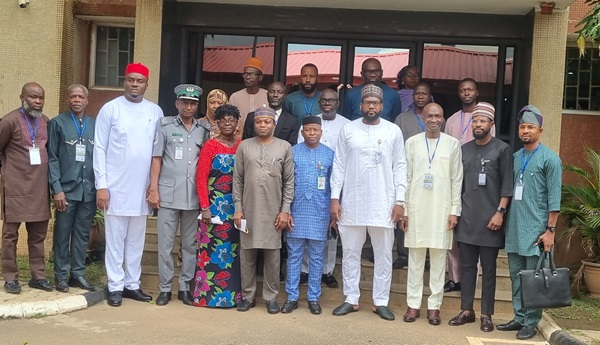
Stakeholders in Nigeria’s energy sector have begun the process of reviewing the country’s Minimum Energy Performance Standards (MEPS) for air conditioners. This initiative, spearheaded by the Standards Organisation of Nigeria (SON) in collaboration with the Energy Commission of Nigeria (ECN) and the United Nations Environment Programme (UNEP), with support from the Clean Cooling Collaborative, aims to enhance energy efficiency across the nation.
During a one-day technical committee (TC) review meeting held in Abuja, the director-general of SON, Dr. Ifeanyi Chukwunonso Okeke emphasised the importance of updating MEPS to reflect current technological advancements. This effort is aimed at positioning Nigeria competitively on the global stage. “This revision is not just about meeting today’s needs but anticipating and preparing for the future to enable Nigeria participate in continental and global trade—the AfCFTA and WTO. By setting appropriate standards for energy efficiency, we are not only contributing to global efforts to combat climate change but also enhancing Nigeria’s reputation as a leader in sustainable energy solutions, potentially attracting more international investments and partnerships,” he said.
Represented by the deputy director of standards development, Engr. Olalekan Omoniyi, Okeke urged stakeholders to significantly contribute to Nigeria’s energy efficiency landscape, setting a standard for other African countries to follow. “I am confident that this esteemed gathering of experts, stakeholders and policymakers, each of whom brings unique perspectives and insights, will produce a robust and forward-thinking MEPS for air conditioners. Your expertise, insights and collaboration are not just crucial but integral to achieving a standard that sets a benchmark for excellence and sustainability. Your active participation in this process will make our MEPS truly representative of our collective efforts and aspirations,” he added.
In his welcome remarks, ECN director-general, Dr. Abdullahi Mustapha explained that the focus of the TC gathering was to review the MEPS for air conditioners in Nigeria, a crucial component of the project, “Scaling Up Energy-Efficient and Climate-Friendly Cooling in Nigeria’s Nationally Determined Contribution Revision.” He highlighted that this collective effort aims to enhance energy efficiency and promote climate-friendly cooling solutions, thereby significantly contributing to Nigeria’s climate goals and sustainable energy access.
“The inception of this review process was marked by a successful stakeholders’ workshop on May 15, 2024, held here in the commission. The discussions and recommendations from that workshop underscored the urgent need to revise and elevate the current MEPS for air conditioners in Nigeria. Today, we continue this journey, further solidifying our commitment to energy efficiency and environmental stewardship,” Mustapha stated. He emphasised the pivotal role of SON in coordinating this review, supported by the technical expertise of the Nigeria National Committee of the International Electrotechnical Commission (IEC), ensuring that the standards are robust, comprehensive, and aligned with international best practices.
“The task before you today, the technical committee, is critical and impactful. Your review and recommendations will shape the future of air conditioning standards in Nigeria, driving advancements in energy efficiency, reducing greenhouse gas emissions, and fostering sustainable economic growth,” Mustapha added.
In his goodwill message, UNEP’s energy efficiency and cooling specialist, Mr. Marco Duran praised the MEPS review process, stating it will set Nigeria’s air conditioning market on the right track towards energy efficiency. Duran noted that this initiative would also help Nigeria achieve its National Cooling Action Plan and Nationally Determined Contributions. He commended SON for its leadership in the review process and ECN for establishing the process and recommendations.
Earlier, the chairman of the Technical Committee on Household Appliances, Engr. Nelson Chukwu, described the mission of the committee as enhancing the energy efficiency of household appliances, particularly air conditioners, to promote sustainable energy consumption nationwide. He stressed that the initiative is not merely a regulatory exercise but a crucial step towards achieving broader goals of energy conservation, environmental sustainability, and economic resilience.
Chukwu outlined the committee’s objectives, including the review of Draft MEPS, promotion of energy efficiency, stakeholder engagement, and making recommendations to the Standards Council. “Our work is a critical piece of the puzzle in building a future where energy is used wisely, where industries thrive in harmony with the environment, and where every Nigerian enjoys the benefits of responsible energy consumption,” he added.
The technical committee meeting saw participation from various government ministries, departments, and agencies, the private sector, including manufacturers and distributors, academia, enforcement, and border control agencies.
This initiative marks a significant step in Nigeria’s commitment to improving energy efficiency, reducing greenhouse gas emissions, and fostering sustainable economic growth through updated standards for air conditioners.


